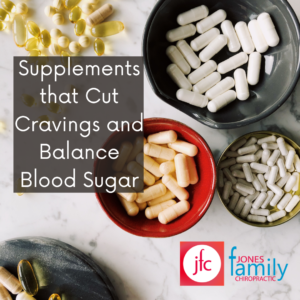Gut Health? What Improves it & What Destroys it
The health of your gut has a huge impact on your body and it goes a long way in determining your overall health. The trillions of bacteria present in the digestive tract make up the gut microbiome (made up of good and bad bacteria, yeast, fungus molds, etc). And they help in digestion and contribute to the health of our entire body, including our brains, immune system, and more.
Below are some ways your gut health impacts your overall health:
The immune system
The bacteria in the gut microbiome play a fundamental role in protecting us against infections. The beauty is that our immune system which detects and destroys pathogens does not attack the bacteria in the gut microbiome. Instead, it works in a mutually beneficial partnership and helps to maintain the symbiotic relationship of the host with these microbes.
That’s more reason why the bacteria in our gut have a large influence on our susceptibility to immune-related diseases. So when we eat foods that can be disruptive to our health our gut works as our first line of defense.
Digestive health
Many good bacteria in our gut help with digestion, nutrient absorption, and even more functions. But when there is a disruption in the balance of gut bacteria, this can often lead to various gastrointestinal problems, including Crohn’s disease, irritable bowel syndrome (IBS), diverticulitis and other inflammatory bowel diseases.
Brain health
You might have noticed a sick feeling in your stomach whenever you hear bad news or you’re in a stressful situation. That’s because the gut has a strong connection with the brain. In fact, there is a constant flow of signals between the brain and the gut via the enteroendocrine cells located in the lining of the gut.
So any problem with your gut health can contribute to depression, anxiety, or stress. Research has shown that the gut also has an impact on mood and behavior.
Heart health
When you hear the saying, “the road to a man’s heart is through his stomach,” it means something more. There’s actually a link between the gut and the heart.
Part of the chemicals produced by the microbes ends up in our bloodstream and moves throughout the body. One good example is trimethylamine N-oxide (TMAO), which has been shown by studies to potentially cause blockage in the arteries and increase the risk of heart disease.
However, another study showed that gut microbiome helps to increase the level of triglycerides and HDL cholesterol (the good kind).
Weight gain, Obesity, and Diabetes
The bacteria in the gut microbiome also play a role in the body’s metabolism. In fact, research has shown that an imbalance in gut bacteria levels could lead to an increased risk of obesity and diabetes. Studies are still ongoing into how the signals from the gut influence metabolism and contribute to conditions like Type 2 diabetes.
What destroys your gut health?
These gut busters are destroying reducing the number of good bacteria in your gut:
- Heating and eating hot fermented foods, such as sauerkraut or kimchi (eat them cold)
- Eating foods containing artificial sweeteners and refined sugars
- Eating high-sugar diets
- Eating processed foods containing additives
- Indiscriminate use of antibiotics
How to improve it
You can improve your gut health to maintain the right balance of the bacteria in your digestive tract. Here are some simple measures to follow:
- Load up on fresh fruits, veggies, and beans, and eat more whole grains and nuts.
- Brush and floss your teeth regularly
- Limit sugars and artificial sweeteners
- Keep fermented foods like kimchi refrigerated below 1150F
- Eat prebiotic fiber like bananas, garlic, asparagus, and chicory
- Avoid indiscriminate use of antibiotics
- Reduce stress
- Exercise regularly
- Get enough sleep
Improving Gut function TOP to BOTTOM – Organs Involved & Gut-brain connection
The food we eat moves through the gastrointestinal tract (a long, connected, hollow tube that starts from the mouth and ends in the anus), and there are lots of organs involved in this process. Along the way, the body absorbs the beneficial part of the food after digestion, giving your nutrients and energy. The remaining part is given out as a waste product.
A series of muscles work together to coordinate the moment of food and cells that produce enzymes and hormones involved in the process of digestion. Other “accessory” organs, including the liver, gallbladder, and the pancreas also involved in this process.
What organs are involved in the process of digestion?
The major organs that are part of the digestive system includes:
- Mouth
- Esophagus
- Stomach
- small intestine
- large intestine
- rectum
- Anus.
These organs work hand-in-hand to convert foods into nutrients and energy that is needed for survival. In the end, it packages the solid waste or stool and gets rid of them through the bowel movement.
Mouth
This is the starting part of the gastrointestinal tract. It starts working even before you ingest food. The moment you see and smell that warm bread or pasta dish, your salivary glands gets active. After ingesting your food and chewing into smaller pieces, your saliva mixes with the food, breaking it into an absorbable form that your body can use. The tongue helps to move the food to the next organ
Esophagus
The esophagus is a long tube close to your trachea (windpipe). It receives food from your mouth, and move it to your stomach through a series of muscular contractions called peristalsis. But for this food to move down, the ring-like muscle called lower esophageal sphincter has to relax to allow passage into the stomach. After that, the muscle contracts to prevent backward flow into the esophagus, which may cause acid reflux or heartburn.
Stomach
The stomach holds food and serves as the mixer and grinder of food. The cells in the lining of this sac-like organ secrete a strong acid and enzymes that are involved in the breakdown of food into a usable form. After proper processing of the food in the stomach, changing it to a consistency of paste or liquid, the content is then moved to the small intestine.
Small intestine
This organ is a muscular tube 22-foot long, having three segments- the duodenum, jejunum, and ileum. This organ is the “workhouse” of digestion, and most nutrients are absorbed here. Foods are mixed with digestive enzymes released by the pancreas and bile produced from the liver. Peristalsis is also in action in this organ, moving food through as it is being mixed with digestive juices.
The duodenum is the first segment and it is largely responsible for continuing the breakdown process. The jejunum and ileum are responsible for the absorption of nutrients into the bloodstream. Once the nutrients have been absorbed, the leftover (the waste) passes into the large intestine or colon.
Large Intestine (Colon)
The large intestine is a muscular tube that is 6-foot long, and it links the small intestine directly to the rectum.
It has segments, including:
- Cecum
- Ascending (right) colon
- Transverse (across) colon,
- Descending (left) colon,
- Sigmoid colon
This organ is highly specialized and it is responsible for processing waste to ease emptying of the bowels. The stool or waste left over is sent to the colon through peristalsis, and any remaining water is absorbed. The stool is stored in the sigmoid colon until a mass movement pushes it down into the rectum to begin the process of elimination through the anus.
Accessory Digestive Organs and functions
Liver
The liver secretes bile and process the nutrient-rich blood coming from the small intestine. It purifies this blood of impurities before allowing it to travel to the rest of the body.
Pancreas
The pancreas is the main factory for digestive enzymes that helps to break down carbohydrates, proteins, and fats. These enzymes are secreted into the duodenum segment of the small intestine.
Gallbladder
This is a sac for the storage of excess bile made in the liver. This bile is released via the bile duct into the small intestine, where it helps to break down fat and move waste out of the liver.
Gut-brain connection
The brain has a strong connection to the gastrointestinal tract, especially the stomach and small intestine. For example, the thoughts of food alone can trigger the release of the stomach’s juice even before eating.
The walls of the digestive system are lined with more than 100 million nerves, starting from the esophagus to the rectum. That’s called the brain in your gut, otherwise known as the enteric nervous system (ENS). So those moments when you’re nervous and feel “butterflies in your stomach,” the ENS is at work.
This brain in your gut mainly controls digestion, from swallowing to enzyme release and food breakdown and absorption. Although this ENS is not capable of thought as we know, it has a direct link with our big brain.
More so, the ENS can trigger big emotional shifts, especially in people with irritable bowel syndrome (IBS) and bowel problems like diarrhea, constipation, bloating, stomach upset, and pain. Little wonder people with these issues tend to develop depression and anxiety.
You can consult Doctor Jason Jones at our Chiropractic office, Elizabeth City, NY, to get mind-body therapies to help your gut function.
7 Natural foods that promote gut health & better digestion
You don’t have to rely on processed foods to nourish, sustain, and grow good gut bacteria to aid nutrition and boost your health. Some natural foods can help boost your gut microbiota. Most of these foods contain dietary fibers and other compounds like polyphenols, and the gut bacteria break them down into vitamins and short-chain fatty acids (SCFAs).
Check out all these foods that are easy to find to promote your gut health:
Apples
You might have heard the saying, “an apple a day keeps the doctor away.” This means that apple contains many health properties that keep your health in good shape. One of such properties is boosting your gut microbiota.
This fruit comes in varieties of colors that can taste sweet, tart, and lip-puckeringly sour. Besides, they contain a prebiotic fiber called pectin, which is hard for the body to digest. But your gut bacteria digest and transform this fiber into SCFAs, like butyrate and propionate. These SCFAs serve as nutrients for the gut microbes to help boost your immunity and strengthen your gut health in general.
Asparagus
This green vegetable is rich in nutrients and it is enjoyed in many cuisines. It naturally contains a kind of prebiotic fiber called inulin, which is acted upon by Faecalibacterium and Eubacterium present in the gut. Some studies have also shown the inulin increases the number of Akkeermansia muciniphilia, another beneficial bacteria found in the gut of lean people.
Oats
Oats are a rich source of beta-glucan, which is a prebiotic dietary fiber fermented by the gut microbiome, thereby promoting their growth and activity. Their soluble fiber content dissolves in water to produce a thick gel that digests slowly, keeping you fuller for longer. The beta-glucan content of oats also helps to lower cholesterol.
Green plantain
Green plantains are not so sweet, but they are delicious when cooked. They are rich in prebiotic resistant starch that serves as food for the butyrate-producing bacteria in the gut. These organisms break down the starch into beneficial short-chain fatty acids that maintain your gut lining and combat inflammation.
Rye
Rye is richer in fiber than wheat, and it has less gluten, which makes it suitable for producing tighter bread, with rich flavors. The grain contains fructan and arabinoxylan, which increases the gut abundance of Bifidobacteria- a bacteria that produces substances like SCFAs and antimicrobial defenses to support your gut environment and other beneficial microbes.
Flaxseed
The flax seeds have a tough hull, and they are often soaked before consuming. However, you can buy the ground flaxseed to save yourself the stress of processing. These seeds support gut health by promoting the production of mucus.
More so, some studies have shown that these seeds protect against colon cancer and reduce gut inflammation. Besides, they contain both soluble and insoluble fiber. The insoluble fiber content supports bowel movements and prevents constipation.
Onions
Onions are a good source of prebiotics that support your gut health. It also contains inulin and fructo-oligosaccharides (FOS) that boosts immunity and prevent diseases.
You may not like onions because they burn your eyeballs, but if you want to strengthen your gut microbiota, it is worth adding them to your meals.
These natural foods and a host of others like mangoes, wild salmon, garlic, etc, work well to help you improve your gut health.
You can consult Dr. Jason Jones at our Chiropractic office at Elizabeth City, NC to get more recommendations on natural foods to improve the balance of your gut microbiota.
Improve Gut Health & Digesting with These 6 Supplements
You need to take conscious efforts to keep your gut health in good condition because it affects almost every function in your body. When your gut microbiome is balanced, it helps you get more nutrients out of food, supports your immunity, and helps you stay healthy and happy. But when your gut health is poor, it can affect your mood, weight loss, heart health, and cause several digestive disorders.
So supporting your gut microbiome is a good way to strengthen your immune system and boost your overall health.
You can try the following health supplements to fill the gaps in your diet, strengthen your gut lining, and boost your microbiome for optimal performance:
Licorice Root
The gut bacteria lives on the gut lining, and you have to ensure that it is functioning well to improve gut health. Licorice root has been shown by many studies to have a beneficial effect on gut health. But it has to be treated first to remove glycyrrhizic acid, which is a natural substance in licorice thought to cause low potassium levels and high blood pressure. A placebo-controlled study found that the licorice root is effective for reducing nausea and pain, and it heals patients with ulcers.
Zinc Carnosine
This supplement combines zinc and carnosine and it is effective for enhancing gut integrity. Preliminary studies show that zinc carnosine helps gut health by improving the ability of the stomach to maintain a strong gut lining.
L-Glutamine
L-glutamine supports your immune system by triggering the release of cytokines which signals “mayday” when attacked by viruses, antigens, and microorganisms. This amino acid also helps to repair injuries in the intestinal wall, and studies show that it also enhances nutrient absorption.
Probiotics
The gut microbiome houses thousands of bacteria living in harmony, and probiotics are the supplement form of those bacteria. When you take probiotics, it helps to build the population of good bacteria needed to help your body get nutrition and maintain a line of defense against pathogens.
However, ensure your choice of probiotics contain these bacteria strains: Bifidobacterium longum, Bifidobacterium infantis, and Lactobacillus plantarum. The good thing about these strains is that they are less likely to increase the production of inflammatory histamines.
Prebiotics
Prebiotics provide the nourishment needed by probiotics or gut bacteria. These supplements contain enough fiber, and it is highly needed when you can’t eat enough fiber-rich food. So the digestive bacteria perform their work optimally when they get enough prebiotics, and they help you feel more full for a long period.
Collagen Protein
Collagen protein is naturally produced by the body, and it is an important part of structures throughout your body, including your gut.
However, your body won’t be making enough collagen protein if you’re not eating a lot of bone broth and organ meats. But you can take the collagen protein supplement to get enough amino acid building block.
You can consult Dr. Jason Jones at our Chiropractic office at Elizabeth City, NC to get recommendations on the best supplement to support your gut health.




